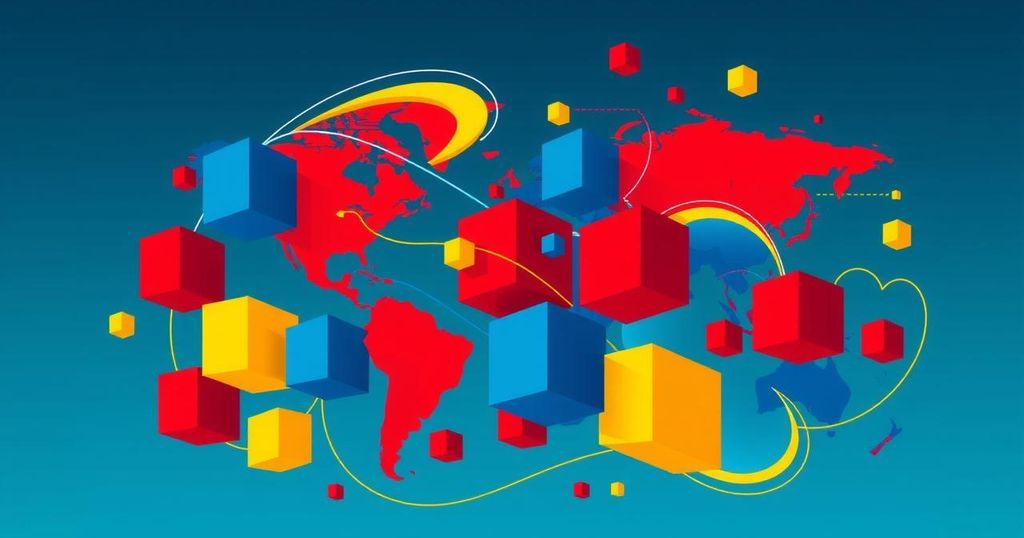Trump’s Tariff Strategy: Implications for Countries Purchasing Venezuelan Oil

U.S. President Donald Trump announced tariffs on countries buying Venezuelan oil, potentially impacting India and China, and contributing to global trade uncertainty. Effective April 2, the tariffs, set at 25 percent, reflect an effort to address unfair trade practices. White House officials suggest the possibility of more targeted tariffs, heightening market fluctuations and indicating ongoing economic tensions.
On Monday, U.S. President Donald Trump announced the implementation of steep tariffs on imports from countries purchasing oil and gas from Venezuela. This measure, reportedly impacting nations such as China and India, raises concerns over global trade stability. As part of his broader economic strategy since returning to office in January, Trump has employed tariffs to influence both economic and diplomatic relations worldwide.
The new across-the-board tariffs, set at 25 percent, will take effect on April 2. Dubbed “Liberation Day” by Trump, this initiative reflects his commitment to enacting reciprocal tariffs aimed at addressing perceived unfair trading practices. Following his announcement, the White House hinted that more precise tariffs might be considered than previously predicted, responding to shifting economic dynamics.
In his statement on social media, Trump charged Venezuela with deliberately sending criminals to the U.S. and characterized the country as hostile to American values. This move occurs amidst previous U.S. sanctions that allowed Venezuela to redirect oil exports to major economies like China and India, despite a recent suspension of deportation flights to Venezuela due to unresolved agreements.
This latest decision adds to a series of tariffs Trump previously vowed to implement around the same date. Although there has been speculation regarding narrower tariff applications, a White House official emphasized that uncertainty persists. Final decisions regarding potential sector-specific tariffs targeting certain economies remain to be confirmed.
The White House has indicated a strong resolve to enforce substantial tariffs as part of an escalation in Trump’s ongoing trade war, with the premise that numerous countries have taken advantage of U.S. economic interests. Treasury Secretary Scott Bessent noted that the upcoming levies would particularly focus on approximately 15 percent of trading partners with existing trade imbalances, referred to as the “dirty 15.”
In conclusion, President Trump is set to impose significant tariffs on oil and gas imports from countries that engage with Venezuela, particularly affecting nations like India and China. This announcement further complicates the global trade landscape as the U.S. aims to rectify perceived unfair trade practices. Additionally, the evolving nature of these tariffs suggests a shift towards targeted measures in the near future, maintaining ongoing economic tensions.
Original Source: www.hindustantimes.com







